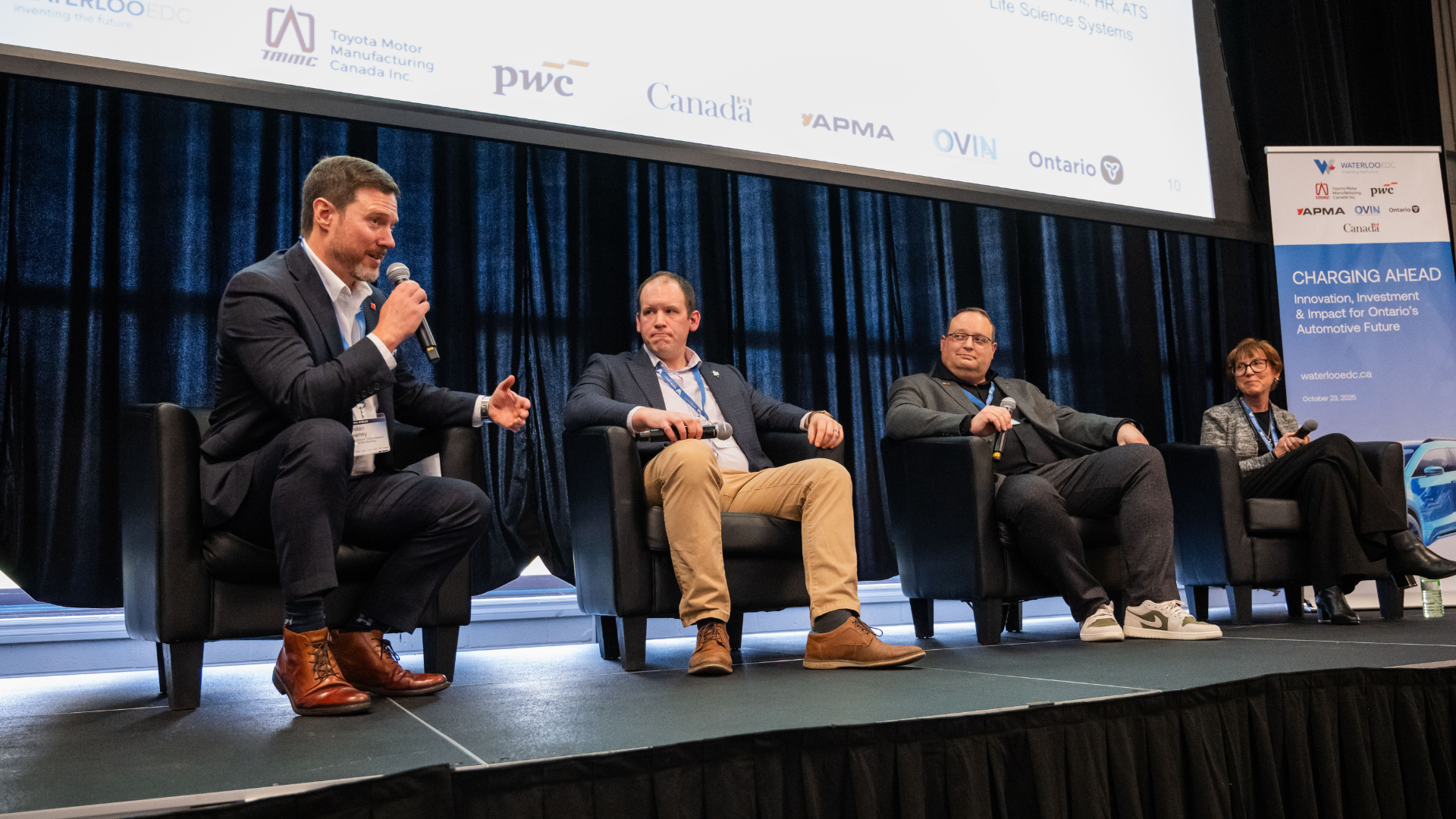With the automotive and mobility industry in Ontario and across North America in a state of flux thanks to shifts away from electric mandates, trade headwinds and more, the time couldn’t have been better to bring together leaders from across the industry for a purpose-built event.
CHARGING AHEAD, a one-day symposium, was tasked with tackling the economic, policy and investment challenges that are reshaping the future of mobility in Ontario and beyond. Attendees heard from renowned economists, globalization experts and leaders from companies including Rockwell Automation, ATS Corporation and Toyota Motor Manufacturing Canada. Sponsors of the event were Toyota Motor Manufacturing Canada, PwC and the Federal Economic Development Agency for Southern Ontario (FedDev). Key event partners included the Automotive Parts Manufacturers’ Association (APMA) and the Ontario Vehicle Innovation Network (OVIN).
“[This] event is about meeting the moment. Ontario’s automotive industry is transforming faster than ever before and at a time when its future existence is for some an open question,” said Waterloo EDC President & CEO Tony LaMantia. “From the major investments made in electrification and process automation to the geopolitical shock of tariffs and fierce competition for globally mobile capital and labour, the challenges we face are at once daunting and playing out rapidly — but the opportunities are extraordinary.”
Keynote speakers and panelists identified and discussed these challenges and opportunities in more detail. Here are the key insights:
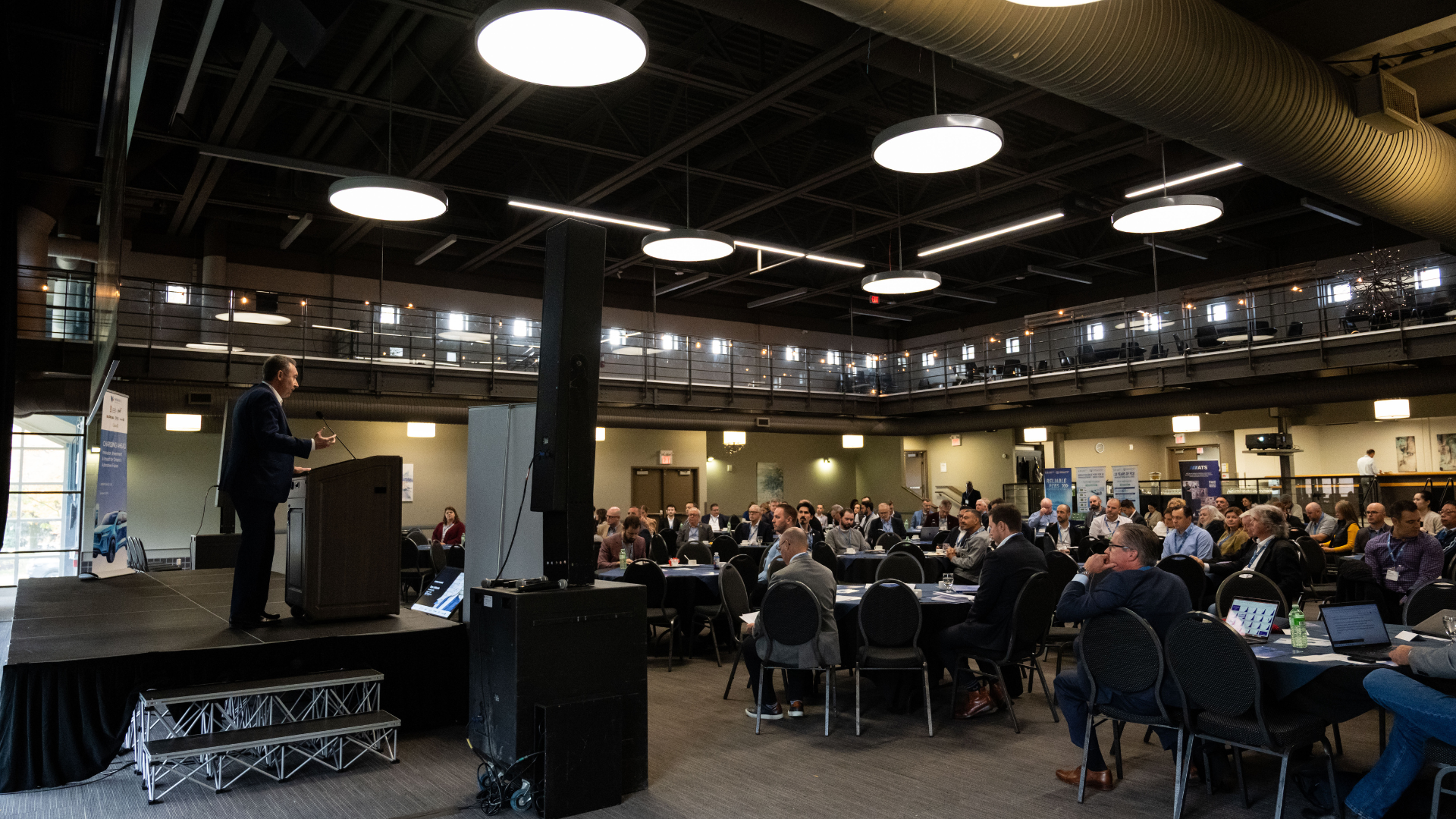
A ministerial welcome
The event began with a welcome message from Evan Solomon, Canada’s Minister of Artificial Intelligence and Digital Innovation, who is also responsible for FedDev. A key sponsor of this event, FedDev is committed to supporting Ontario’s substantial automotive industry.
“The Government of Canada will continue to stand with industry, stand with academia and with communities as we all work together to navigate these challenges and seize the opportunities that lie ahead by building on our strengths right here at home,” said Minister Solomon. “Today’s discussions on innovation and investment and impact are exactly what we need to ensure that Ontario remains a global hub for automotive excellence.”
Turning crisis into opportunity with Peter Hall
Following Minister Solomon’s remarks, Peter Hall, CEO of econosphere inc., shared his perspective on Canada’s automotive challenges.
In his keynote, Peter argued that Canada’s economic challenges aren’t about weak demand but about deep structural issues, with tariffs posing a major threat to supply and growth. He called for a “whole of industry” approach, urging Canadian leaders to show up strong in upcoming international negotiations and work collaboratively with U.S. and Mexican partners.
Peter wrapped up by reminding us that “crisis is the mother of transformation” – by working together, we can transform trade and tariff challenges into opportunities.
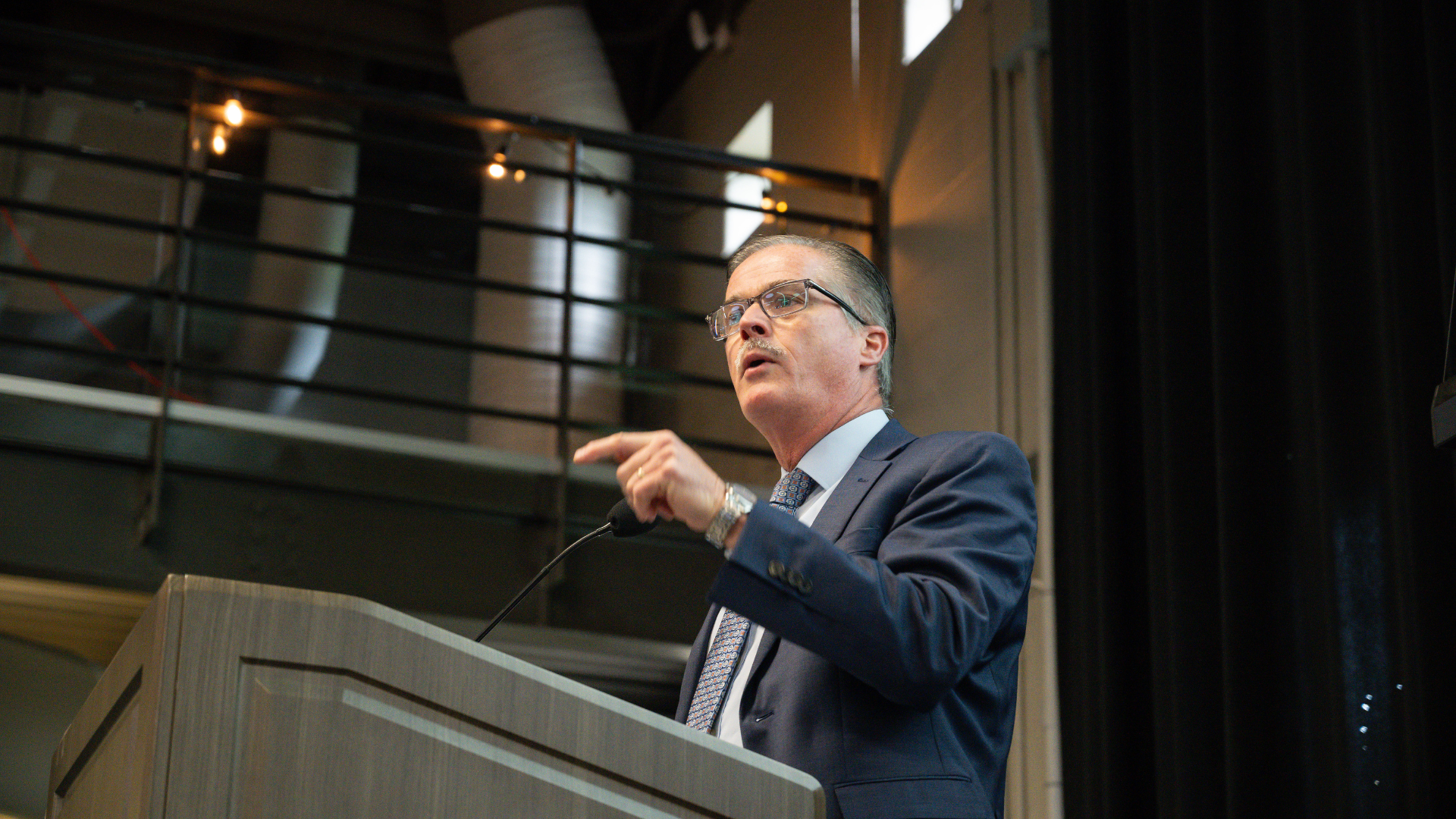
Supply chains, sustainability and software: Strengthening automotive logistics
The first panel, “Building Sustainable & Resilient Supply Chains,” kicked off with moderator Jayson Myers, CEO of NGen, asking panelists to share their vision for stronger supply chains in Ontario.
Mona Eghanian, Assistant VP at the Ontario Vehicle Innovation Network, emphasized the importance of proactively building supply chains that can withstand shocks by anticipating risks and investing in talent development. A partner at PwC Canada, Chris Casey echoed Mona’s comments about being proactive and said that companies need to adjust their margins and invest in tech to transform their supply chains. Ryan Gariepy, VP of Robotics at Rockwell Automation, added to the conversation about AI and software by discussing the advantages and challenges that small and medium-sized companies face when adopting technology.
Together, all panelists emphasized the importance of community building to ensure a future of automotive innovation, resiliency and sustainability.
From grit to growth with Flavio Volpe
Flavio Volpe, President & CEO of the Automotive Parts Manufacturers’ Association (APMA), delivered a keynote that connected the Toronto Blue Jays’ comeback with Canada’s automotive sector.
Just like the Jays, who rose from last place through grit and teamwork, Canada’s auto industry has the same potential to defy expectations. Flavio reminded the audience that while we may not have the scale of the U.S. or China, we have something more enduring: talent, collaboration and innovation rooted in shared purpose.
At a time when Canada is making greater commitments to national defense and security, a strong auto industry can serve dual purposes. “When we strengthen our automotive industry, we’re not just building cars – we’re building capability. The same technologies that power next-generation vehicles can support our national defence and economic resiliency,” said Volpe.
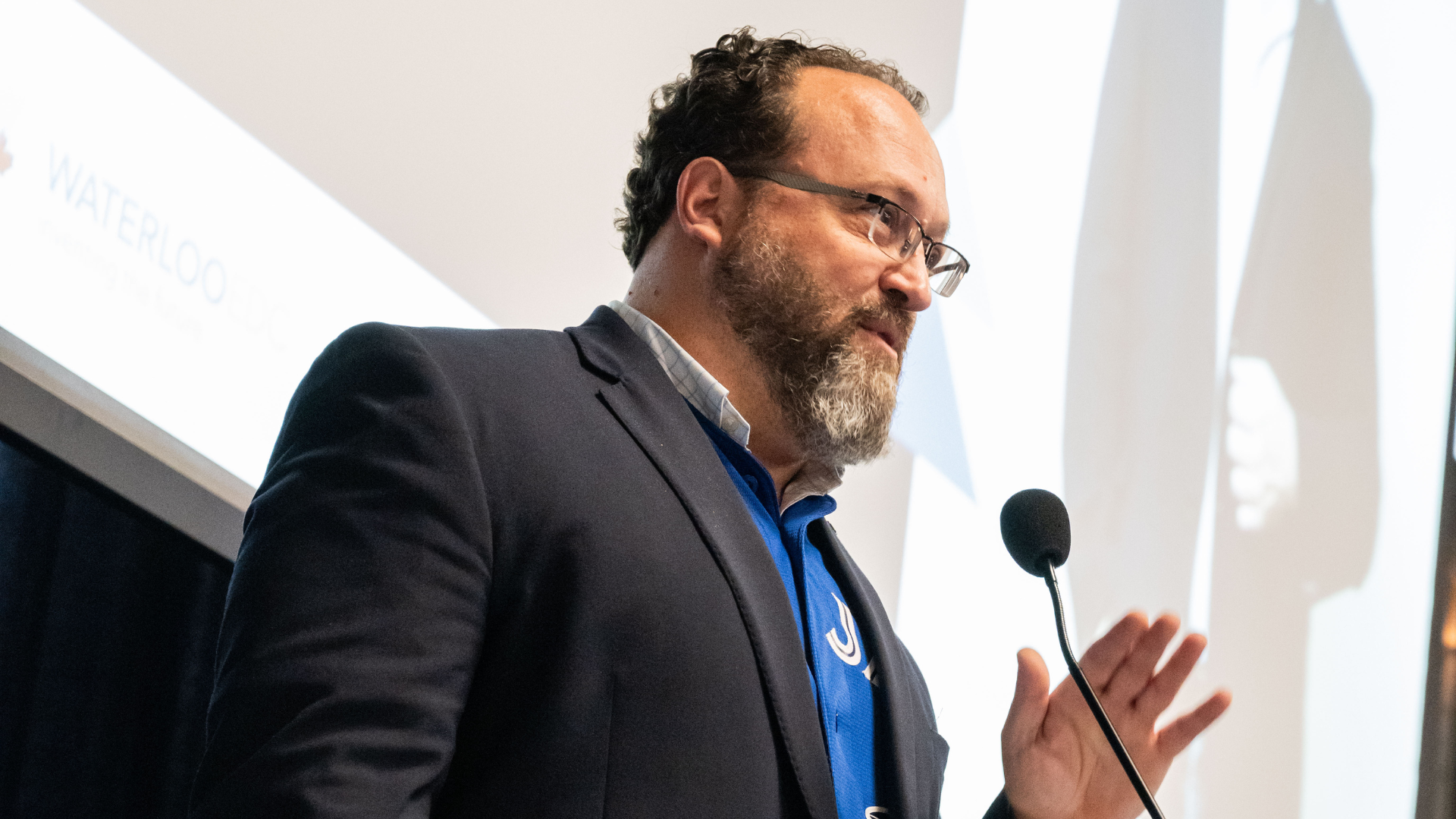
People, partnerships and pride: Ontario’s talent advantage
The second panel, “Workforce Development & Talent Retention,” explored Ontario’s competitive edge in skilled talent. Moderator Brendan Sweeney, Managing Director of Trillium Network for Advanced Manufacturing, asked panelists to share their experiences and insights on attracting, developing and retaining talent.
Michael Benoit, Associate Director of the Waterloo Centre for Automotive Research, highlighted the strength of local schools and praised co-op programs for producing capable and adaptable students. Phil Sadler, VP of Administration at Toyota Motor Manufacturing Corporation, emphasized the importance of creating a supportive work environment where employees feel trusted and empowered. Kathy Markowiak, VP of HR at ATS Life Science Systems, added that appreciating employees and giving them opportunities to innovate is key to retention and engagement.
The panel concluded that talented people, strong partnerships and a culture of pride and trust are essential to maintaining Ontario’s competitive advantage, especially as AI and automation enter the industry.
Innovation and diversification with Amy Karam
Amy Karam, author of the China Factor, delivered her keynote after the second panel. She broadened her focus to center on Canadian innovation and exportation, as well as global geopolitical dynamics between Canada and China.
She advocated for a more proactive approach to global partnerships and stressed the importance of adopting innovative business models geared toward commercialization. To become more competitive, she explained, Canada needs to assess geopolitical risks, diversify its international trade partners and leverage intellectual property. Her critical analysis left audience members reflecting on how Canada can navigate economic uncertainty and become a world leader in industry and innovation.
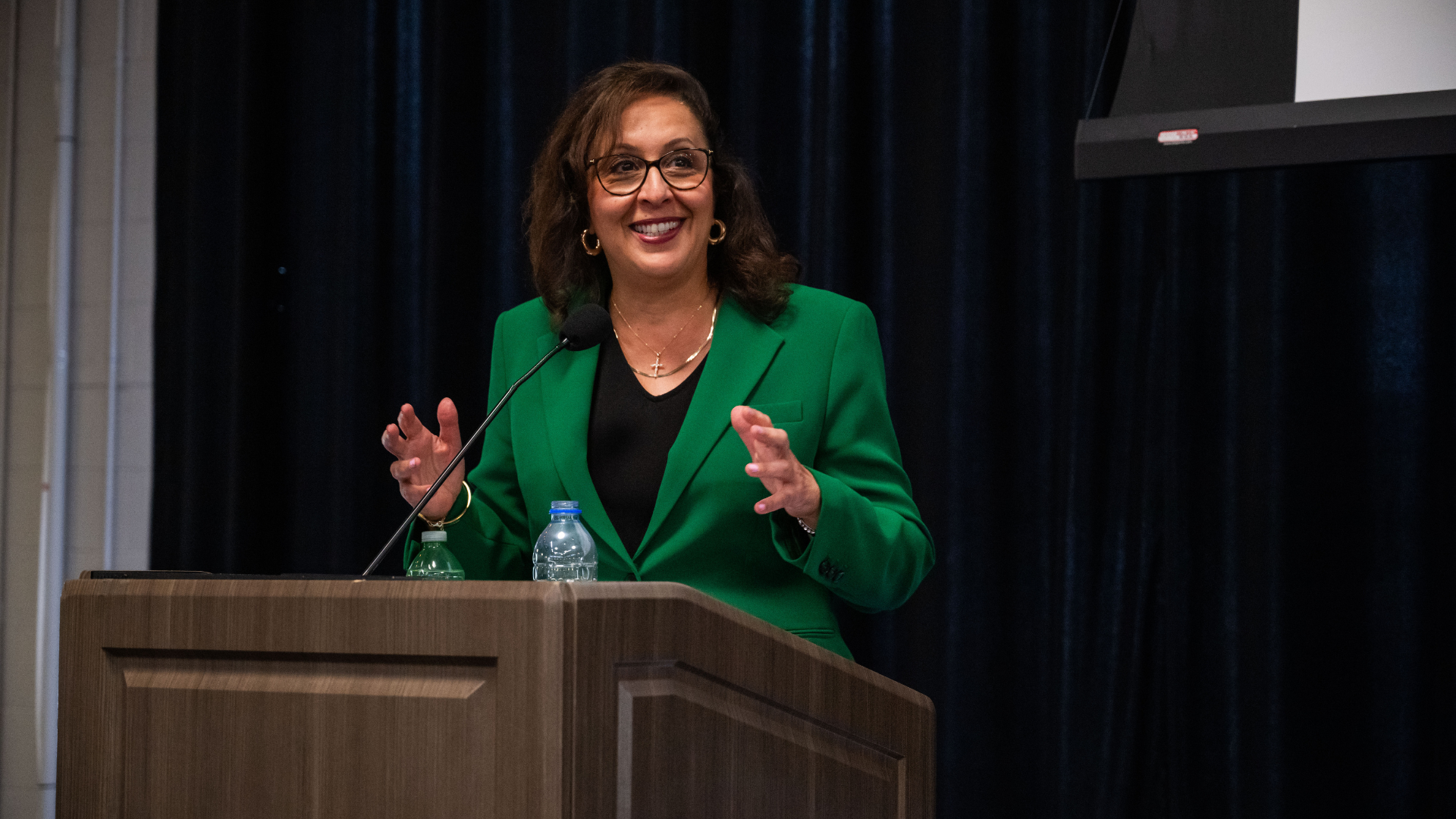
The road ahead for Ontario’s auto industry with Raed Kadri
Raed Kadri, Head of the Ontario Vehicle Innovation Network (OVIN), reflected on how Ontario’s auto sector has turned tariff disruptions into opportunity. Driven by Ontario’s world-class manufacturing, top-tier research institutions, critical minerals and deep tech talent, we’re fully equipped to take on new challenges in the auto sector. “From the first vehicles built over a century ago to today’s breakthroughs, Ontario’s tradition of innovation and resilience drives us forward,” Kadri said.
He also talked about OVIN’s role in uniting regions from Windsor to Waterloo and Ottawa and transforming early-stage ideas into innovations. A cornerstone of this effort are the Mercedes-Benz incubators, one of which is in Waterloo Region. By leveraging local strengths and international partnerships, Ontario is not just keeping pace with change – we’re on the road to shaping the global automotive landscape.
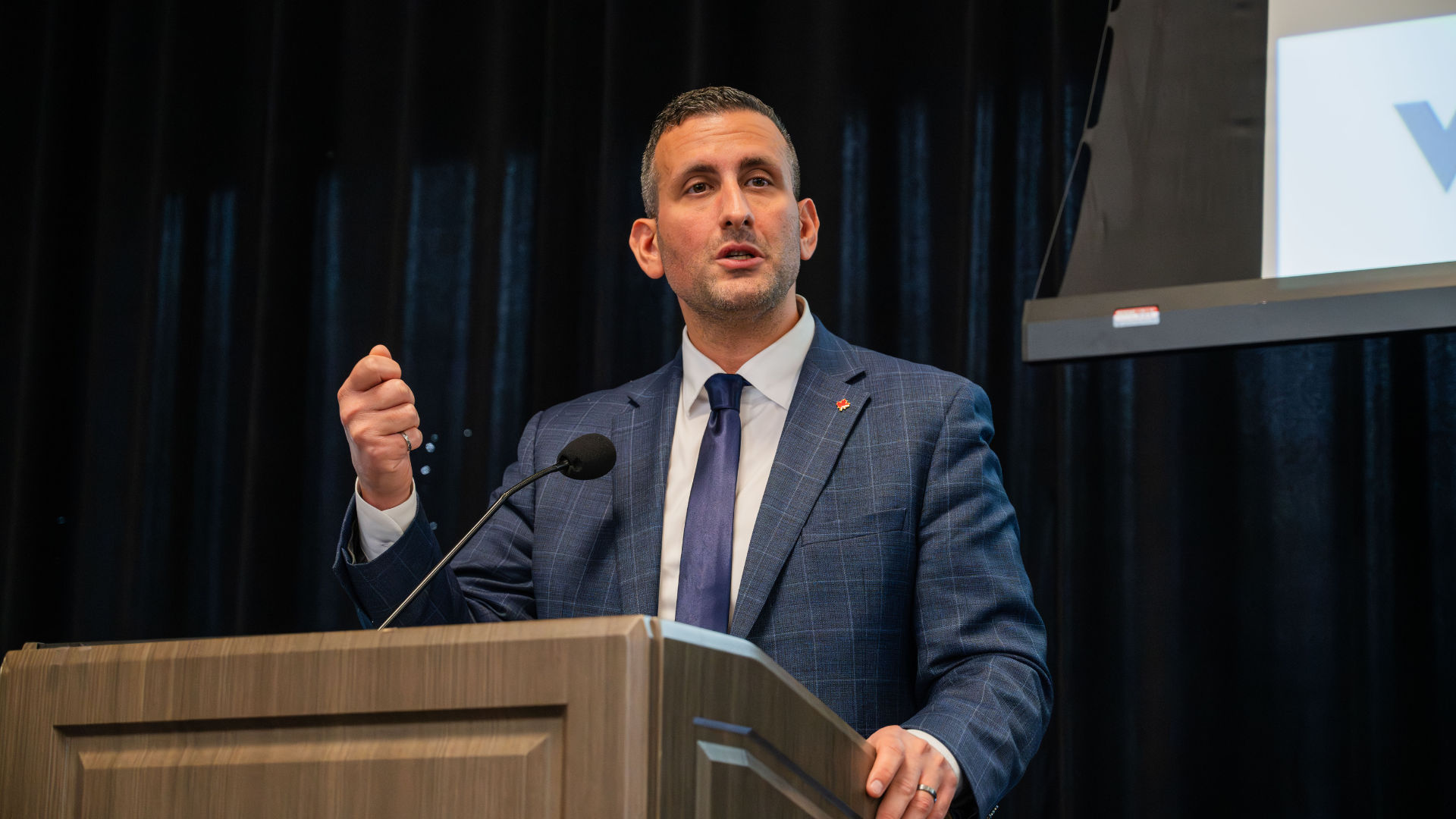
Key Takeaways
- Ontario’s automotive industry is changing faster than ever before, and automotive companies face both challenges and opportunities
- To build sustainable and resilient supply chains, companies need to be proactive, invest in talent and integrate technology into their workflows
- A strong automotive industry supports economic resiliency and innovation
- Fostering a strong pipeline of talent is key to maintaining Ontario’s competitive advantage in the automotive sector
- With strong community, business and government partnerships, Ontario is shaping the future of automotive excellence
Waterloo Region is at the heart of the Ontario Automotive Corridor. Home to Canada’s largest automaker – Toyota – and more than 100 automotive and autotech companies, Waterloo has quickly become a focal point for automotive companies seeking to develop new innovations, including Ford and Mercedes, as well as key suppliers like Dana and PWO Group.
If you’d like to learn more about investing in Waterloo, or you simply want to learn more about our automotive ecosystem, contact the Waterloo EDC team today.
